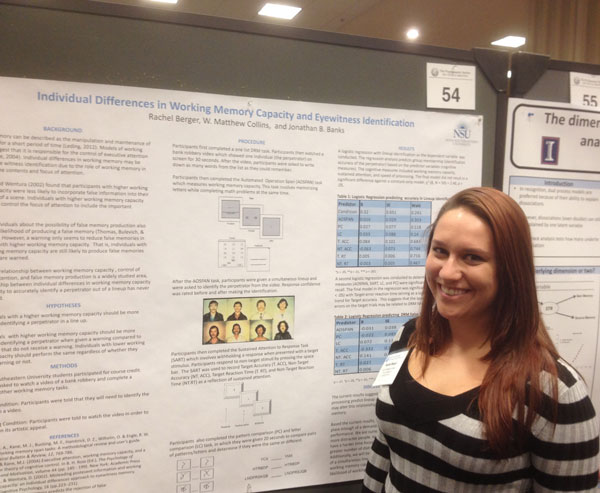
Three students from the Farquhar College of Arts and Sciences presented at the 54th Annual Meeting of the Psychonomic Society in Toronto, Canada, Nov. 14–17.
Psychology major Anil Sawh presented his co-authored research poster titled “Source Memory Recognition is Dependent Upon Time of Learning.” The research found that a person who learns the name of a stimulus before encountering it will have an improved chance of recalling that stimulus in the future. The results may help provide a better understanding of how having the language ability to describe an event or a stimulus can affect one’s ability to remember that event or stimulus. Sawh worked under the guidance of faculty adviser W. Matthew Collins, Ph.D., assistant professor at the college.
Rachel Berger, an Honors biology major pursuing a behavioral neuroscience minor, presented her co-authored research poster titled “Individual Differences in Working Memory Capacity and Eyewitness Identification.” Berger’s study examined whether differences in working memory capacity and the ability to sustain attention affect the ability to identify the perpetrator of a crime. The results might provide a way to predict an eyewitness’s accuracy when identifying suspects. Berger worked under the guidance of Collins and Jonathan Banks, Ph.D., assistant professor at the college.
Neymi Orozco, a student in the college’s M.S. Experimental Psychology program, presented her co-authored research poster titled “Power Posing: Do Brief Nonverbal Displays Influence Attentional Processes.” Orozco’s research examines how posing the body in either a powerful or weak way subsequently influences one’s behavior and working memory processes. Orozco worked under the guidance of Collins and Leanne Boucher, Ph.D., assistant professor at the college.

